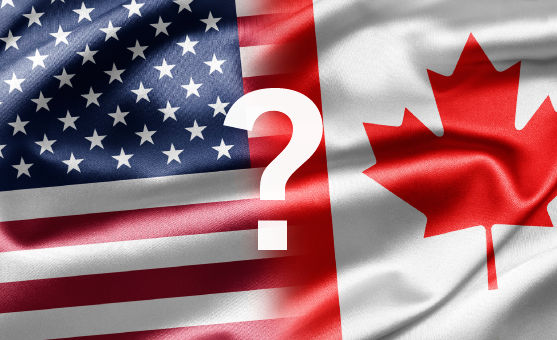The Foreign Account Tax Compliance Act (FATCA) has highlighted the importance Canadian insurance advisors need to place on ensuring they know their client’s true nationality before selling them life insurance, says a trust and estate practitioner.
Peter Merrick, CFP and president of Toronto-based MerrickWealth.com, says unfortunately, many Canadian advisors have not been given correct information about the nationality of some clients, especially those who may have an American parent or were brought to Canada from the U.S. when they were young – but who have never considered themselves Americans. They may fall into what Merrick calls the “accidental American” category.
“Most Canadian life insurance advisors have no idea how to sell a policy to someone who is American,” says Merrick. “That’s why the policies they have sold have been sold wrong.”
Merrick gives the example of an accidental American, living in Canada, who buys a life insurance policy in this country plus has accumulated a worldwide estate worth at least US$5.35 million. When the client dies, and the U.S. government discovers he is American, the life insurance proceeds, regardless of beneficiary, will become part of the client’s estate. Anything above that US$5.35-million threshold is subject to 40% estate taxes for the American government.
U.S. estate taxes
“I would say about 99.9% of insurance advisors in Canada have no idea that if they sold a policy to an American living in Canada, or someone who has a green card, that this is ever going to happen on death. They are going to find this is an unpleasant surprise for the beneficiaries.”
The same problem does not exist for Canadians living in the U.S. because CRA does not levy a tax on life insurance.
FATCA has shone the light on this issue because under intergovernmental agreements with other countries, such as Canada, the U.S. is looking to find “U.S. persons” who live outside of the country to ensure they are paying required U.S. taxes.
Currently, Canadian financial institutions are sending letters to customers who may fall under FATCA and asking them to fill out an online form. The information is collected by Canada Revenue Agency (CRA), which then forwards the material to the Internal Revenue Service in the U.S.
Merrick says there are ways to lessen or eliminate the tax problem, but they are all based on an individual’s particular circumstances.
“Most importantly, keep in mind that every solution requires careful planning so as not to trigger other adverse U.S. tax consequences,” he adds.
He also says Canadians who have residency in the U.S., own property in the U.S. – or even own U.S. stocks and bonds in Canada may also be subject to U.S. estate taxes.
Work with experts
Merrick suggests that any financial advisor contemplating selling a U.S. citizen a life insurance policy or selling a Canadian U.S. stocks and bonds work with a U.S. tax lawyer or accountant who specializes in U.S.-Canada cross-border law.
Americans living in the States get around the life insurance-estate tax headache by using various strategies, including buying an irrevocable life insurance trust. But Merrick says there are difficulties with this too.
“In the U.S. a trust can last for many generations. In Canada, trusts disappear after 21 years so there’s special planning for that.” Merrick notes that Americans living in Canada have to abide by that 21-year rule as well.
Liability concerns
He cautions that Canadian advisors who don’t learn the rules could find themselves in serious financial trouble if found responsible by courts.
“I think when the day comes there could be a lot of liability. The estate might say: you were the financial advisor; you didn’t ask the right questions, you didn’t provide the solution. Therefore I am going to sue you [for the amount of the taxes].”









